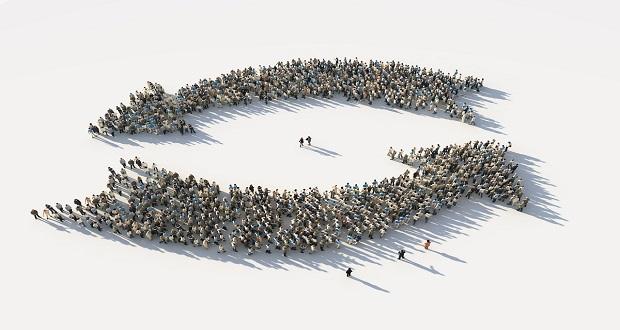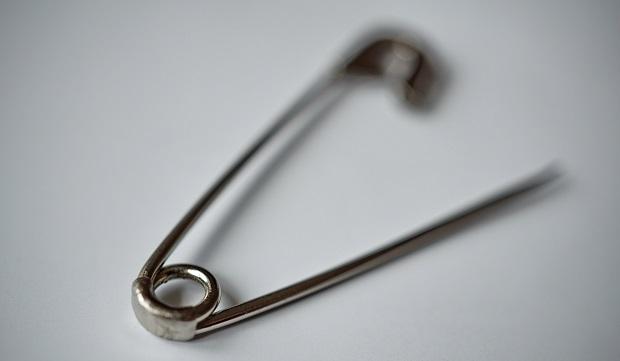
Yesterday we hosted the second lab of a three-part Virtual Learning Lab series on the intersections and impact of the #MeToo Movement. This second lab titled “Man to Man: Accountability, Backlash, and the Role of Men,” explored the ways we have come to define masculinity as a culture, what it means to live in a patriarchal society, and what men can do to be accountable within this movement, rather than complicit.
Throughout the process of creating this lab, I had my own profound learning experience listening to facilitators Travis Jones and Charles Jackson unpack their stories of masculinity and the ways in which they’ve worked to cultivate positive male identities. As a young millennial woman, I am only a few years out of a college experience in which it felt like every other friend I had was sexually assaulted in some way. My female friends are beginning their careers and navigating the workplace by making sure their emails to their male colleagues are “nice enough to get a helpful response” and wearing enough make up every day for people to take them seriously. It is easy to get cynical and frustrated that we seem to be carrying this burden by ourselves.
But as we put this lab together, I was reminded of the men that are and have been doing this work. This is the work, this unpacking of masculinity, that we think can help us move forward together.
That being said, the lab began with defining the systems we want to break. We began with defining masculinity as well as defining how it operates in the systems of patriarchy, sexism, and misogyny in which we live.
Patriarchy is an unjust social system that enforces gender roles and is oppressive to both men and women. It often includes any social, political, or economic mechanism that evokes male dominance over women (David Richards).
Sexism is the cultural, institutional, and individual set of beliefs and norms that privilege men, subordinate women, and denigrate values and practices associated with women (Teaching for Diversity and Social Justice).
Misogyny is the range of practices and policies by which we uphold patriarchal systems and weaponize sexism (Kate Manne, Down Girl: The Logic of Misogyny).
When we think of #MeToo, do we think of the gender pay gap, the glass ceiling, the disparity in promotion rates between men and women, or the lack of paternal leave or paid parental leave in this country?
When we think of #MeToo, do we think of the messages we teach boys from the very beginning that turn into justifications for inequity? Do we think of all the moments we tell boys to “Buck up!” and stop crying? Do we think of the moments when we affirm that they are strong and smart at the same time that we’re telling girls, “You are beautiful” or “You’ll find your prince someday”? Do we think of all the times we tell boys to have fun and girls to be careful?
When we think of #MeToo, do we think of the ways that we protect the status quo? Do we think of the times we’ve told women, “You’re being too sensitive,” or “It was just a joke,”? Do we think of the times we ignore women’s voices in meetings only to praise the same exact ideas from male colleagues? Do we think about the ways women worry about asking a man not to invade their personal space because they know that the intent wasn’t malicious? But what about the impact?
The lab brought up many of these conversations, and as usual, the chat pod was full of stories, mostly from women, affirming these realities and asking men to break these cycles of not only abuse but also of ignorance. Participants also brought up important points like the necessity of addressing internalized sexism in women. The knowledge and experience these participants brought into the lab was powerful.
Something else happened in the chat pod that is important to acknowledge. There were a few, loud men who came to the lab blatantly choosing not to listen and only to challenge. They took up space in the conversation, mansplained their way through distracting commentary, and sometimes created a space that was more combative than productive. As a woman who had been so impacted by the unpacking of Travis and Charles’ stories in the lead up to this moment, it was frustrating and disheartening to see their main audience turn away from the experience, unwilling to do the work.
As we posited from the beginning, the way to fight complicity and hold ourselves accountable to a better, more empowering world for both women and men begins with listening to one another and exploring our own stories. But it’s hard, and it can be uncomfortable, and that process sometimes requires us to challenge long-held beliefs or suspend suspicion of ideas counter to our own. I hope that, despite those few loud, distracting voices, the lab created a space that was safe for this exploration. I hope the women listening feel comfortable encouraging the men in their lives to join them on this journey and that the men listening take the time now to think about the ways their ideas and actions might perpetuate negative systems but also how they can begin to cultivate positive systems of equity within their worlds.
Be sure to join us Tuesday, March 27th, as we continue to unpack these conversations, reflect on what we’ve learned, and focus on what we can do now. We will have a Bold, Inclusive Conversation™ about building an equitable world together. Add your voice to the dialogue – register today.


















